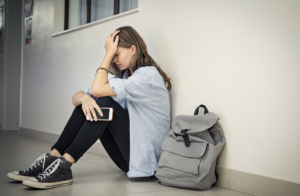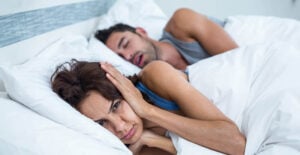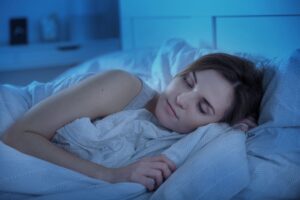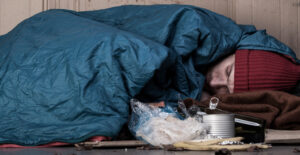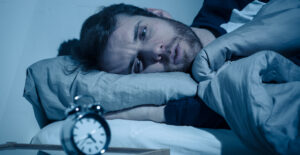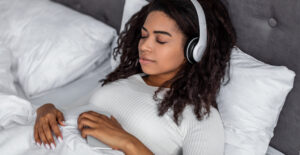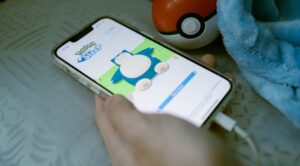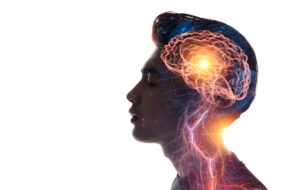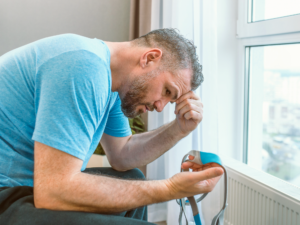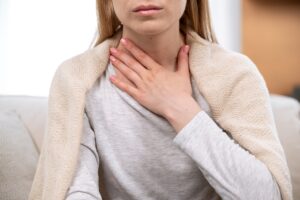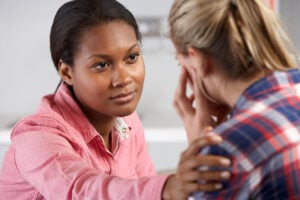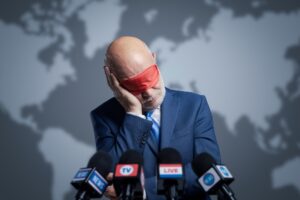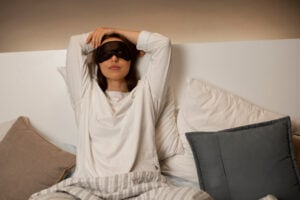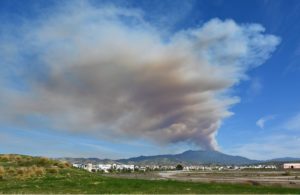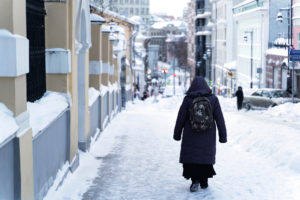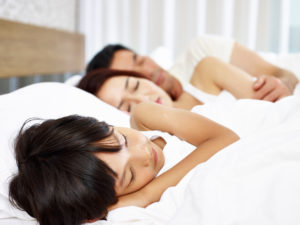New Study Finds Post-COVID Insomnia is Common Even Among Mild Cases
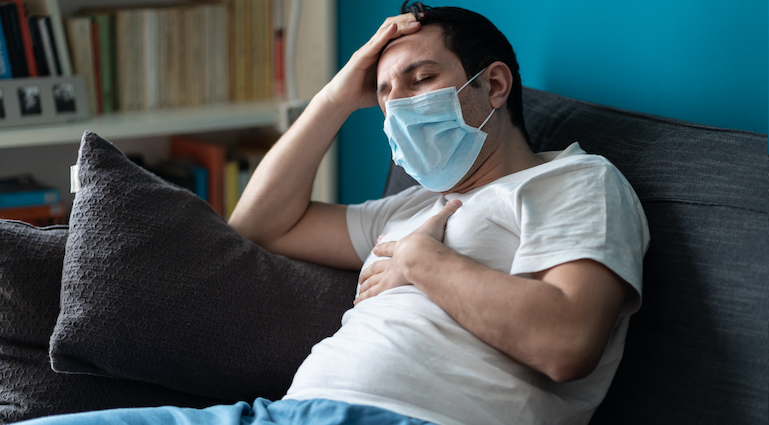
It turns out that even some of the mildest cases of COVID can have long-term effects beyond the lingering loss of taste and smell. Specifically, insomnia.
We already know that sleep issues can be associated with patients who were hospitalized with severe cases of COVID. But researchers continue to document the long-term effects of the virus years after the global pandemic was declared in March 2020. A new study shows that as many as three-quarters of mild COVID infections can trigger insomnia, a sleep disorder marked by difficulty falling and staying asleep. These nighttime problems can lead to daytime issues, such as sleepiness or trouble concentrating.
The study, published in Frontiers in Public Health in February 2024, involved over 1,000 adult patients in Vietnam. Participants were surveyed between June and September 2022 for insomnia, depression, and anxiety within six months of initial COVID infection. These adults were not hospitalized and reported no prior history of insomnia.
The result? Some 76% of participants who had recovered from COVID reported experiencing insomnia. Almost one-quarter of those had severe insomnia. The authors note that these post-COVID numbers are “remarkably higher” than what has been previously reported among the general population, which is between 10% and 20%.

One-third of the group surveyed reported poorer sleep quality, shorter sleep time, and more trouble falling asleep since before infection. Half said they woke up more often during the night. Those with a higher education level, with chronic conditions, such as heart disease or a metabolic disorder, or who scored higher for depression and/or anxiety were even more likely to develop insomnia post-COVID.
“Our study highlights the substantial burden of insomnia among non-hospitalized COVID-19 survivors and the significant association of depression and anxiety on the development of this long-term effect of COVID-19,” the researchers wrote.
This may not be surprising, as evidence has long pointed to a two-way relationship existing between mental health and sleep — poor sleep patterns can worsen mental health, while poor mental health can lead to sleep troubles.
The authors conclude that their findings regarding insomnia and after COVID infection “underscores the crucial need to implement comprehensive interventions to address the psychological and sleep health of COVID-19 patients after recovery.”
Got a hot tip? Pitch us your story idea, share your expertise with SleepFoundation.org, or let us know about your sleep experiences right here.
References
3 Sources
-
Han, Q., Zheng, B., Daines, L., & Sheikh, A. (2022). Long-Term Sequelae of COVID-19: A Systematic Review and Meta-Analysis of One-Year Follow-Up Studies on Post-COVID Symptoms. Pathogens (Basel, Switzerland), 11(2), 269.
https://pubmed.ncbi.nlm.nih.gov/35215212/ -
Hoang HTX, Yeung WF, Truong QTM, Le CT, Bui ATM, Bui QV, Le QTL and Quach LH (2024). Sleep quality among non-hospitalized COVID-19 survivors: a national cross-sectional study. Front. Public Health. 11:1281012.
https://www.frontiersin.org/journals/public-health/articles/10.3389/fpubh.2023.1281012/full -
Alvaro, P. K., Roberts, R. M., & Harris, J. K. (2013). A Systematic Review Assessing Bidirectionality between Sleep Disturbances, Anxiety, and Depression. Sleep, 36(7), 1059–1068.
https://academic.oup.com/sleep/article/36/7/1059/2453875


